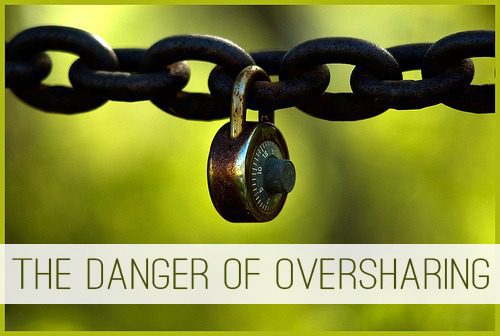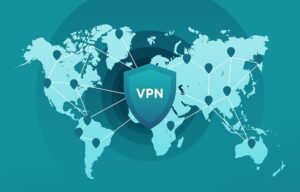The following post is from Michelle of Mommy Misadventures – The Dangers of Oversharing on Social Media
Raise your hand if you love your social networking. Yeah, I am right there with you. My typical updates look something like this:
Leaving for work now — urgh, so not awake yet. Need coffee.
[ check-in ] * Michelle just checked in at My Favorite Coffee House
Now here’s the real question: do you know who’s reading your updates? Are you oversharing information on social media?
Social media networks like Facebook and Twitter make it easy to help share what’s going on in your life. The problem is when the wrong people get hold of that information.
Criminals are smart. They’re connected and know how to use the Internet to their advantage. Stalking a victim, getting to know their routines and the times they’re home (and when they’re not) is as easy as opening a web browser and checking an open Facebook and Twitter account. This excellent infographic from Credit Sesame helps illustrate exactly how your social media info can be misused.
Last week, Cult of Mac ran a story that went viral about an app called Girls Around Me, which aggregated public profiles of women in an area. Everything from check-ins, status updates, profiles, and photo albums were aggregated for app users to see. As a result of the article, Foursquare has since revoked the app’s API access, disabling many of the app’s features. As of March 30th, Facebook is investigating the app as well.
Scary stuff. While the app is hopefully mothballed, it highlighted many security risks associated with being on social media. The safest option is to simply not use social media.
But I’ll be honest: I can’t imagine deleting my social profile. Luckily, you don’t have to. Being vigilant about safeguarding your profile – and being selective about what you share and who you share it with – can help reduce the risk of using social media.
Table of Contents
Lock down your social profiles.
This is the easiest step you can take to help protect yourself. Set your Twitter profile to private, allowing only people you’ve added to your Twitter friends list to see your tweets. Set your default privacy setting on Facebook to “Friends” and go through your Friends list to make sure that you personally know everyone that has access to see your profile and status updates. This is a good starter guide to locking down Facebook.
Turn off the GPS updates.
If you post photos to your social media accounts from your smartphone, turn off the GPS update feature which embeds the coordinates of where the photo was taken.
Use alternative social networks for personal updates.
If you really love sharing photos and updates, apps like Path that allow you to share just with your loved ones may be a better option than the more open Facebook or Twitter.
Be selective.
Most importantly of all, be selective about what you share. Don’t overshare. Status updates and check-ins can make it easy to track your movements. Photo updates showing valuable or expensive things in your home or perhaps information about your home’s layout can be very valuable to a would-be thief. Think twice before updating your profile with potentially risky information.
Could your social profile be giving away too much information?
| Michelle Mista is an IT professional, writer and blogger with a love for all kinds of technology. She writes about tech tips and trends for work at home professionals on her portfolio blog and muses about motherhood at Mommy Misadventures. She is on the constant quest to balance life, work and geekery. | |




